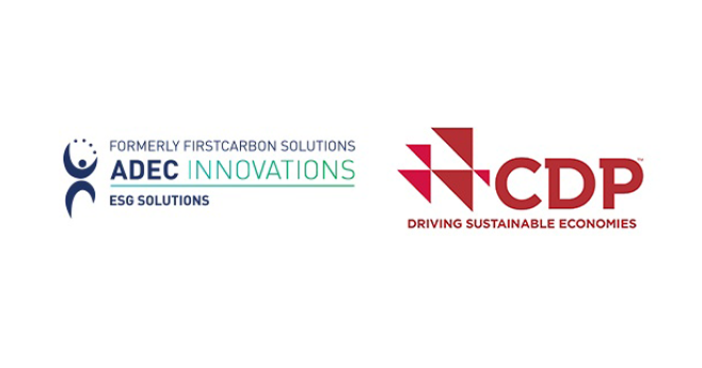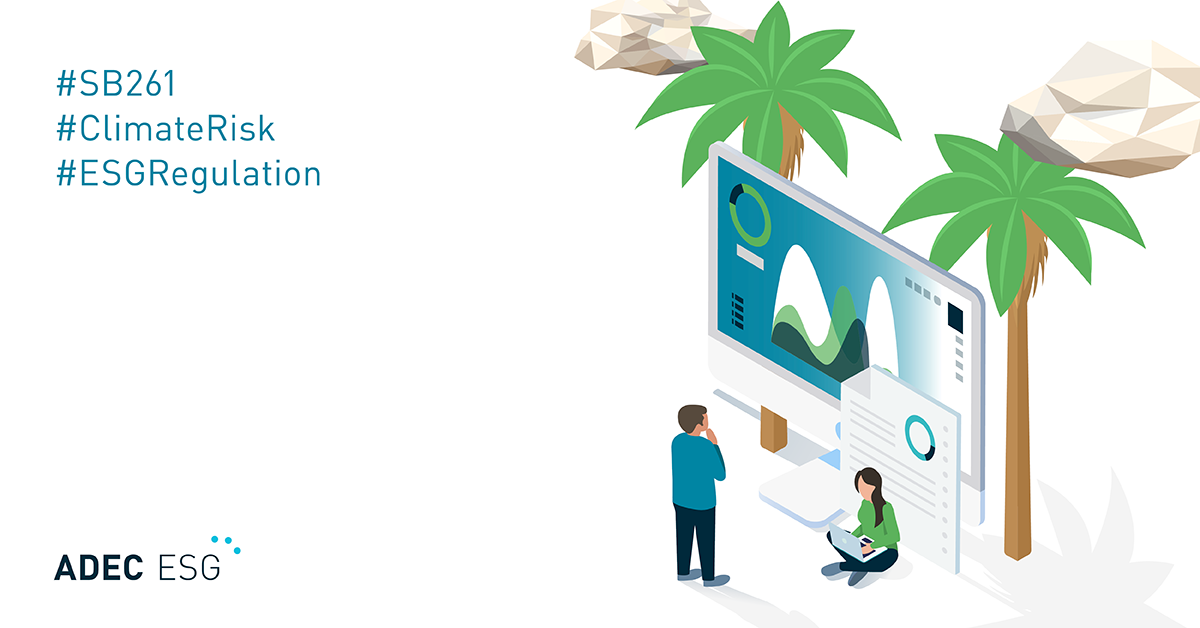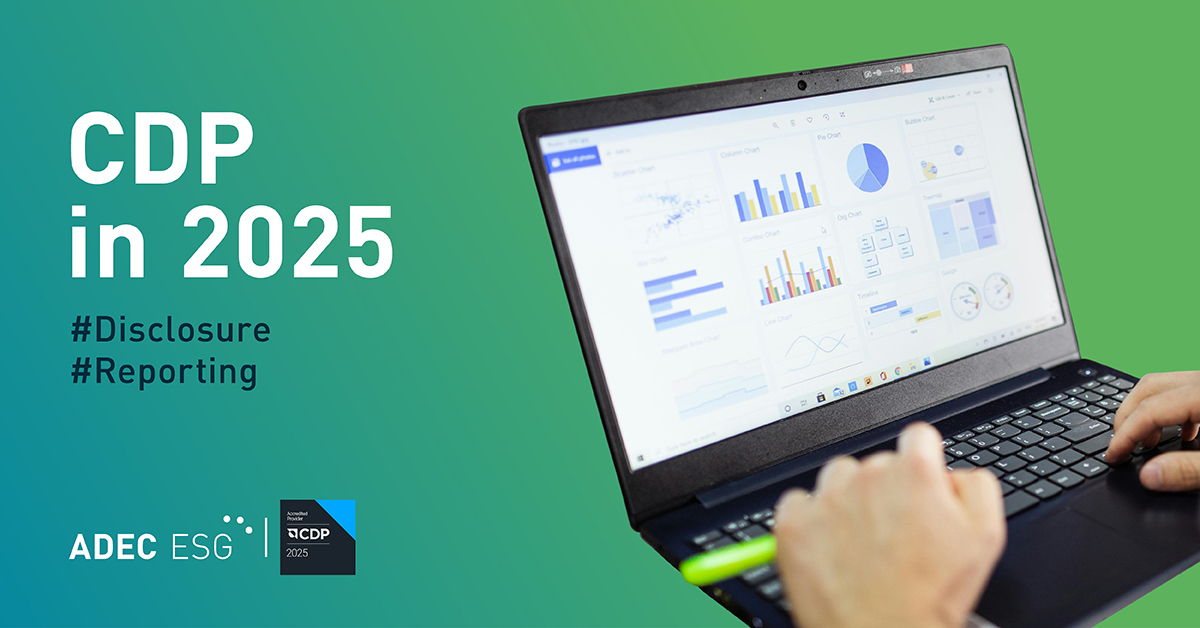CDP performance is one of the key indicators of a sustainable business, helping calculate the impact companies have on climate change. Investors and customers consider a business’ CDP performance to be one piece of concrete proof of its sustainability.
CDP recently launched its new sector-focused investor strategy as part of its “Reimagining disclosure” project. With this strategy, CDP will introduce sector-based questionnaires in Q4 2017 and introduce a new reporting system which will facilitate data gathering, collection and analysis for investors.
CDP’s new strategy has multiple benefits. The questionnaires aim to enable better peer-to-peer comparison, benchmarking and investment decision-making. Companies and investors will be able to find out if they are making adequate responses to the transition to a low-carbon economy. Moreover, the new strategy will help CDP comply with COP21’s terms and conditions, as well as effectively implement the TCFD (Taskforce on Climate-related Financial Disclosures) recommendations expected in December 2016.
CDP’s new sector-focused investor strategy is critical, as they note that USD 4 trillion worth of assets will be at risk from climate change by 2030. In addition, the global market for low-carbon goods and services is estimated to be USD 5.5 trillion. In order to help limit climate change to 2°C, the steel industry, for example, must reduce its emissions per ton of steel by 70 percent by 2050. In 2017, 70 percent of the world’s steel production will already be subjected to carbon pricing—but the steel industry still has no operational carbon capture and storage projects.
The CDP Climate Change Report 2016 further emphasizes the need for this investor strategy. According to the report, just over one thousand of its 1,839 respondent companies were able to provide data on their respective emissions. Of the companies that provided data, 85 percent already have set targets to lower their GHG emissions. The report points out, though, that “setting targets is not enough without realistic plans for meeting them,” and adds that meeting GHG reduction targets is “not enough if the targets themselves are inadequate.”
The number of companies setting GHG reduction targets has increased in recent years. The report claimed that 55 percent of companies have targets for 2020 and beyond, and 14 percent of companies have targets for 2030 or beyond. Limiting climate change to 2°C will take more than a decade to accomplish, and companies need expert guidance on how to come up with effective GHG reduction targets, with realistic plans for meeting them.
Companies can address climate change and take advantage of the associated market opportunities by joining CDP’s programs. CDP members have access to the most comprehensive collection of primary corporate environmental data globally, as well as high-quality data on environmental risks. CDP enables investors to determine the impact of a company’s policies by comparing the company’s year-to-year performance. They can rank, score and compare companies based on their carbon reduction and energy-efficiency activities. Investors can then determine which companies to invest in. As a result, more investments in the low-carbon goods and services market are made while assets are secured from climate change-related risks.
After moving FirstCarbon Solutions’ (FCS) ESG businesses line under ADEC Innovations (ADEC) last month, we continue to help companies improve their CDP performance with our ADEC ESG Solutions:
- Performance Reviews – ADEC’s Performance Reviews help companies interpret CDP scores in order to formulate a plan for improving their performance.
- GHG and Water Assessments – ADEC has subject matter expertise and data process management services to help companies gather and assess their GHG and water impacts efficiently and effectively.
- Disclosure Completion – ADEC provides remote or on-site consulting by a trained CDP analyst to develop all or part of a company’s CDP response, helping prevent improperly structured answers to CDP questions—a major hurdle in receiving maximum points in CDP responses.
- Scoring Assessments – ADEC’s Scoring Assessments ensure that every answer within a company’s response is read and scored based on the current year’s CDP methodology and guidance before submitting it.
- Data Collection – ADEC is capable of translating disparate and diverse data sources, including water and GHG information sources, into usable, clean information for CDP and other sustainability reporting schemes.
- Software Solutions – ADEC’s software solutions provide companies with a cost-effective platform upon which to build and manage their sustainability programs.
It is important to note that, in accordance with CDP’s conflict of interest policy, ADEC does not provide official scoring services for any of our CDP consulting clients.
In addition, ADEC provides scoring and reporting services to CDP’s investor-led Climate Change Program for select countries—including the United States, Canada, United Kingdom, Benelux countries, Nordic countries, Germany, Austria, Switzerland, Italy, South Africa, Southeast Asia, Japan, Australia, New Zealand and India—and for a portion of the investor-led Water Program. ADEC has also been the exclusive scoring partner for CDP’s Supply Chain Program since 2011.
ADEC has scored more than 20,000 CDP submissions and conducted over 1,300 performance review calls with companies around the world. ADEC is one of the leading experts in the functional requirements of the CDP Climate Change and Water questionnaires. ADEC’s CDP solutions can help transform organizations’ data into a sound basis for financial decision-making and corporate engagement.
With our CDP solutions, ADEC ESG advances sustainability practices and helps organizations reduce costs, while optimizing resource use. To find out more about how to improve your performance, download our white paper, ‘Your Road to Leadership’.




